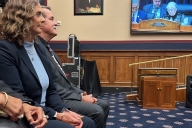You have /5 articles left.
Sign up for a free account or log in.
Update: Professor Africa died on March 6, shortly after this post was published.
Last week I went to Colorado to say good-bye to an important person in my life, Thomas W. Africa. Professor Africa is how I first met him. In 1981 I was a first year graduate student at Binghamton University and he was an esteemed professor of ancient history, author of a seminal article about Cesar’s assassin Brutus, “The Mask of an Assassin,” and a fine overview of Roman history, The Immense Majesty, among his other works. He was much more than that, however, to me and to many of his graduate students. Professor Africa is the best read person I have every met – and that is saying something after spending close now to forty years in higher education. He was also an excellent teacher, not so much in charismatic performance per se (although he had enough of that to be a fine lecturer, which I witnessed as his teaching assistant) but in conveying to students how to read deeply by the probing analysis in which he instructed us to think. I refer here not to “semiotics” or “deconstructionism” but a purely curious and essential critical analysis. Thomas Africa exemplified humanism as both a study and a professional ethos.
Asked to give a talk on digital literacy some years ago and searching for an intellectual foothold, I immediately remembered a comment he made in a lecture about the decline and fall of the Roma Empire, “It only takes a generation.” For literacy, culture and traditions to fall away, it only takes one generation’s failure to teach the next one, an insight profound because it is both stunning and obvious. (If you are curious, I wrote a blog about it in 2011.) Reflecting upon that comment now, in light of last week’s experience, I am struck by how an observation about a time and place so very long ago informed and subtlety revealed Professor Africa’s contemporary abiding commitment to education.
He could famously bring a graduate student up short for ignorance, never to injure, only to motivate. With black crow sculptures adorning his place at the head of the seminar table in his office, he cultivated an imagine of darkness which his wicked humor belied, distilling the study of history, a discipline many think of as dry as dust, to one pulsing with life. History as a thing in and of itself is gone; the past has passed. For the lay person, it is at best a memory. Professionally, historians don’t really write “history,” they write historiography, interpretation, more or less, based on “evidence” and so called “facts.” Many do so unwittingly, making transparent their own obsessions; many more do so to engage in thinly veiled polemics. What Thomas Africa did uniquely was to be sure that his students never forgot that the discipline was always about people. For better or for worse, humanity covers a wide and endlessly fascinating canvas of emotions, behaviors and personalities. History is not them, it is us.
Some time after Professor Africa’s wife and mother of his two children passed away in 1985, he and my best friend from graduate school, Sandra Peacock, found each other on equal turf – she worked at Sophie Newcomb in New Orleans and he at Binghamton – and married. Without that connection, it is unlikely that I would have had the honor to be with him again last week. Over the last many years, we all have spent a lot of wonderful times together. Sandy, who went on to be a professor of history at Georgia Southern, and Tom are the godparents of one of my children, and we frequently visited on Thanksgiving. One year, as I attempted to tame a big turkey on a small green egg, it went flying off the grill. Nikko was a teen-ager, which in part accounts for why when I asked him to pour some wine on the bird once I wrestled it down, retorted, “I’m not doing anything unless Tom okays it!” Another holiday we gave up the grill and got our bird from Food King in Virginia Beach, listening to the waves crash as we ate our cranberry sauce with gewürztraminer and finished the meal off with bourbon.
Tom bespeaks the well-lived life. At his bedside in Colorado, modeling did not stop.To be with someone in sacred moments who is at peace is a privilege, particularly someone who has given their life to teaching in its most meaningful sense. Without words he shared how to leave this world in dignity and love, respect and friendship.
Reader, share with me your experiences with teachers who have shaped your life?






